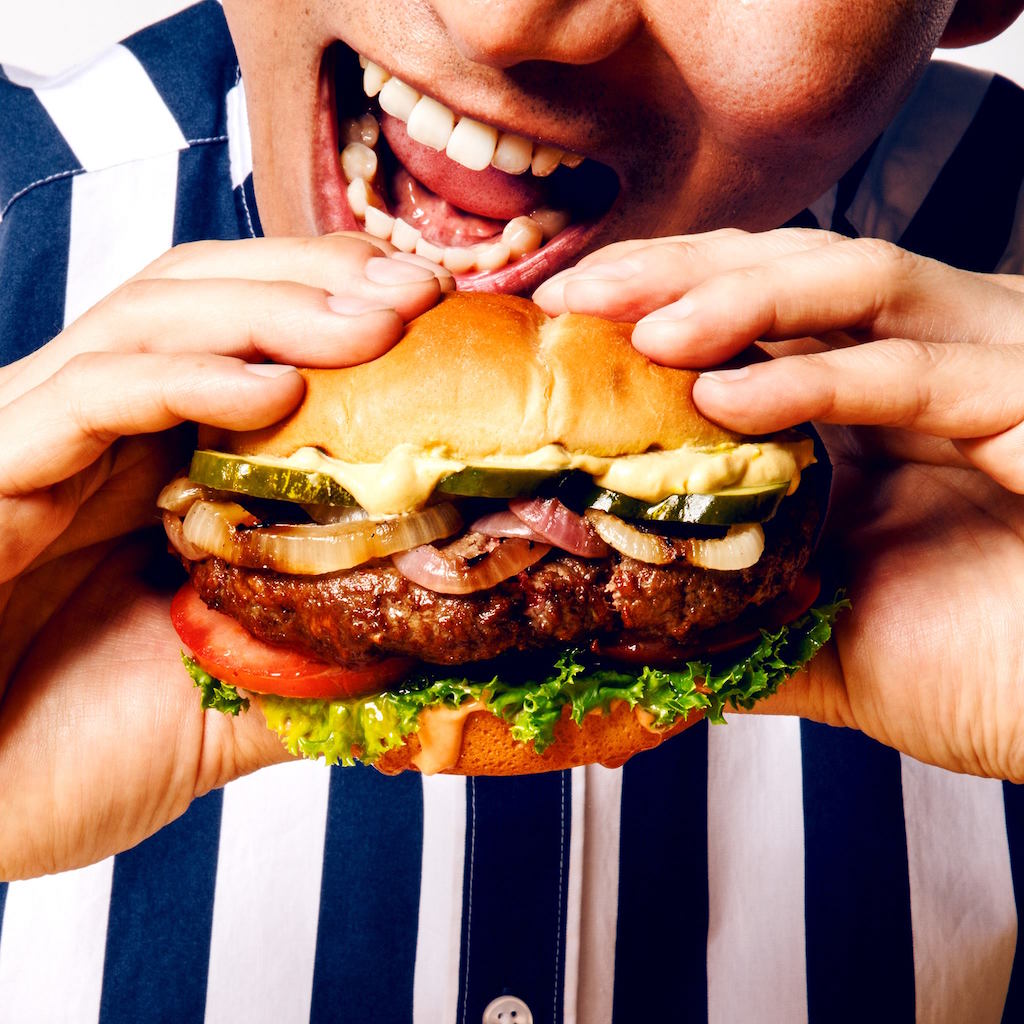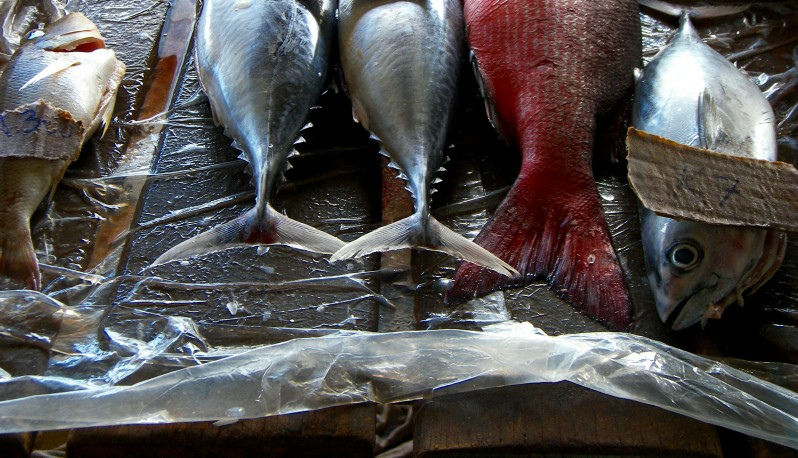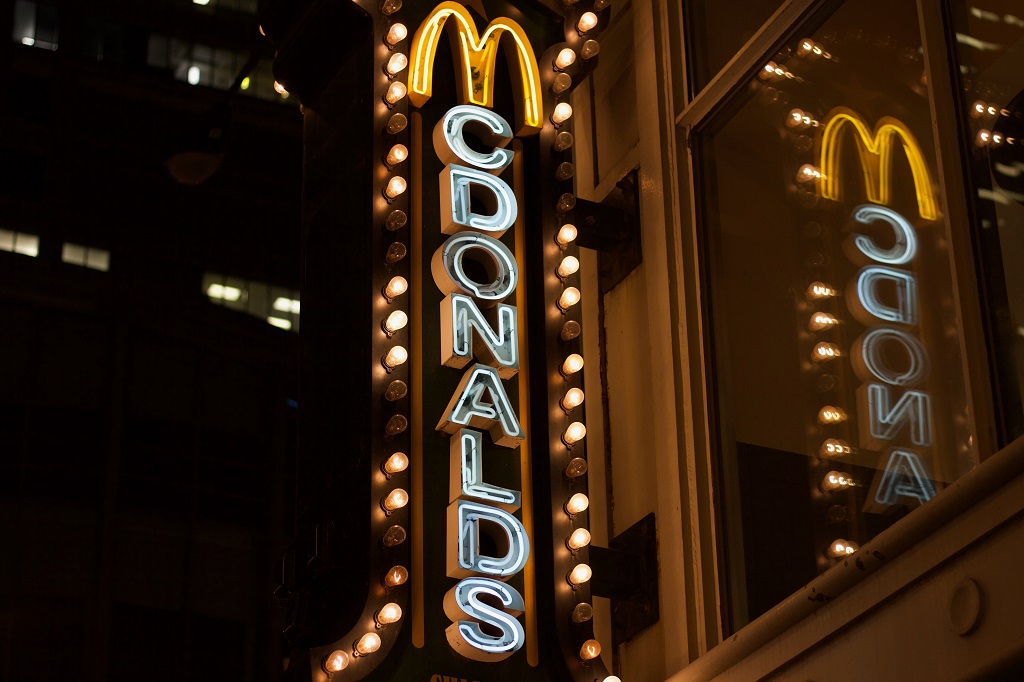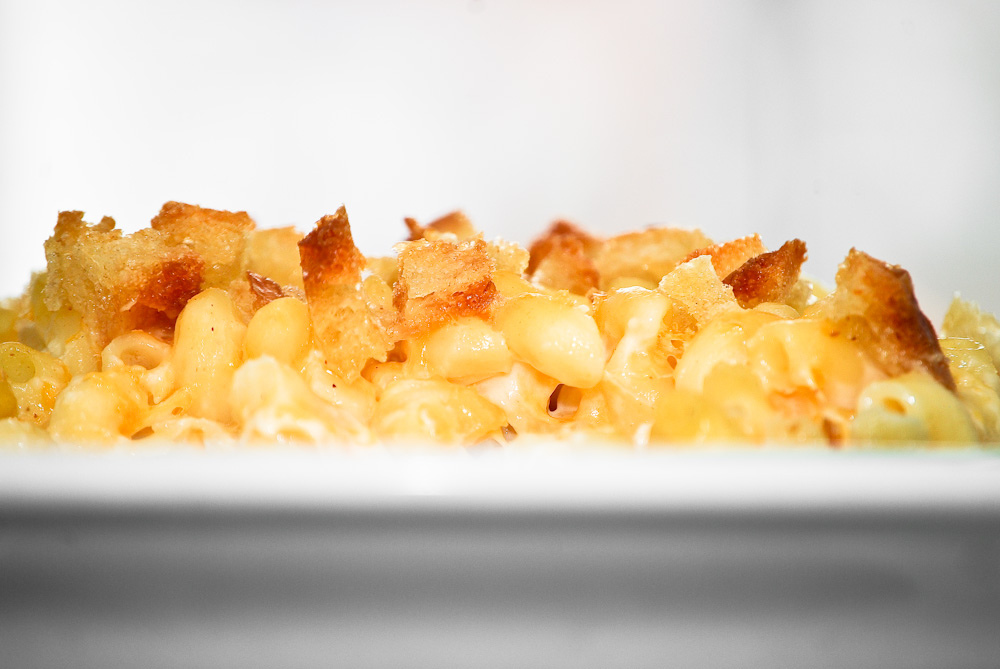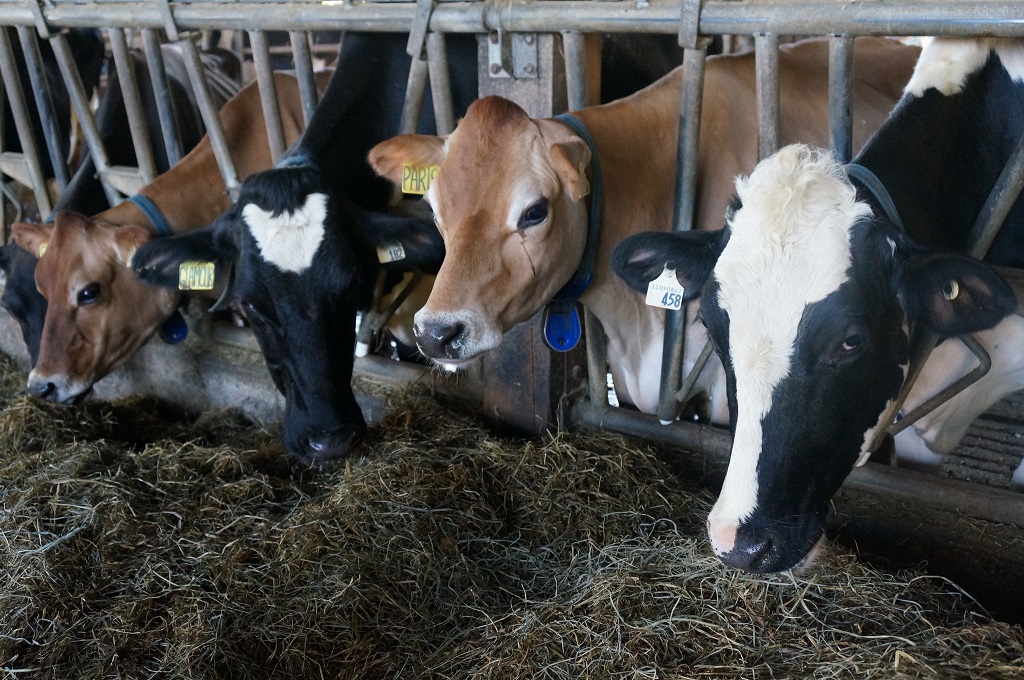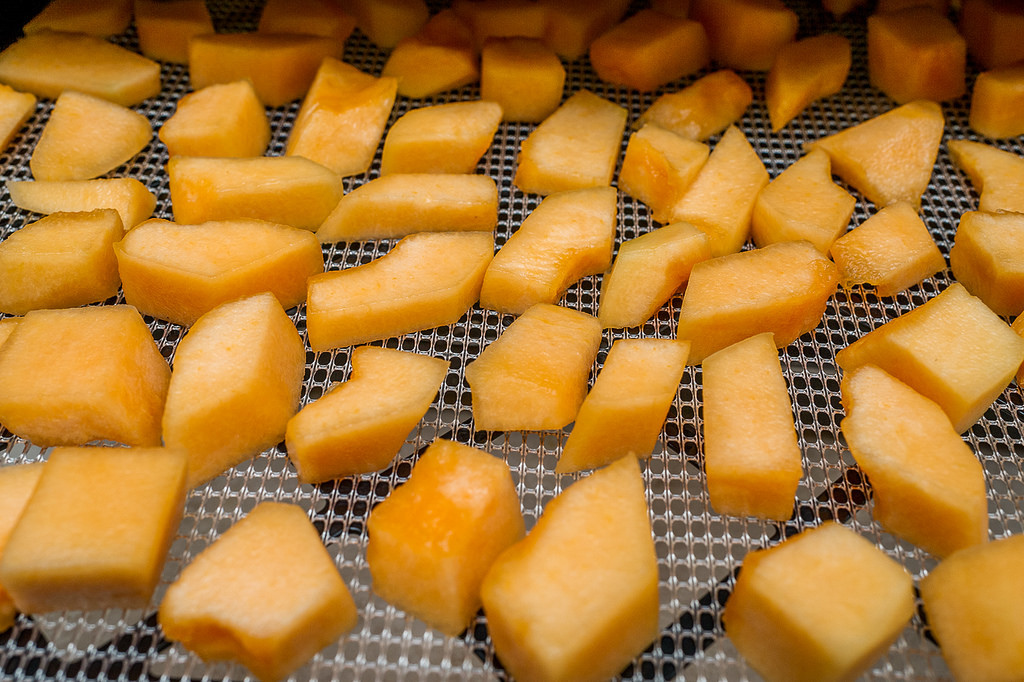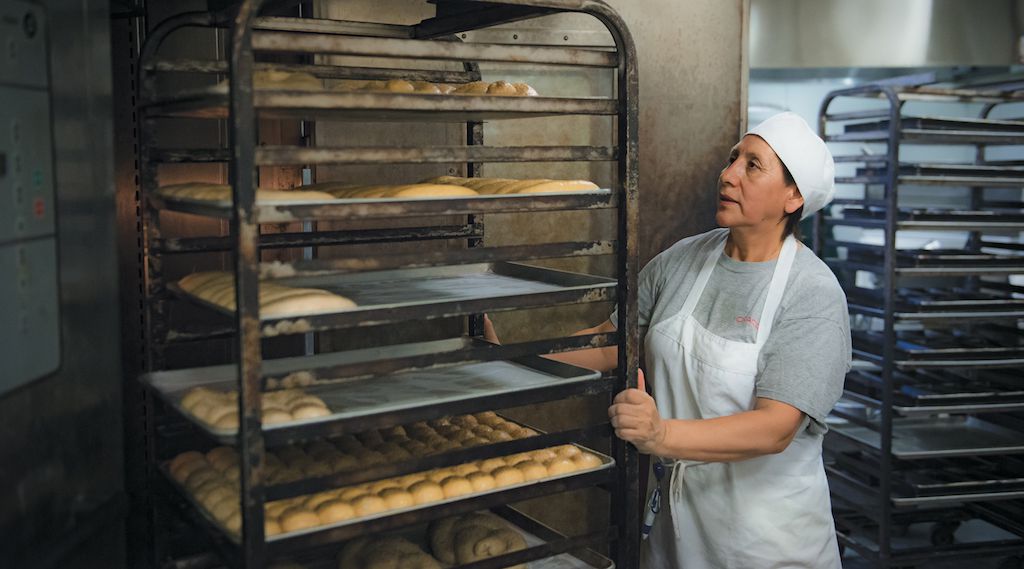
Hot Bread Kitchen
This is the web version of a list we publish twice-weekly in our newsletter. It comprises the most noteworthy food stories of the moment, selected by our editors. Get it first here.
“The camera eats first.” Gone are the days of traditional wedding meals—meat, starch, and vegetable—served on boring white plates. The latest trend in nuptial nosh is all about extravagant, “image-forward” food, Karen Stabiner writes for The New York Times. Shards of chocolate bark dangling from a parasol, for instance, or “Jackson Pollock” tartare, adorned with sauce splotches. We can thank food TV for spawning a generation of food gawkers who want these Instagrammable menus that start at $230 to $250 a person (no mention of where those numbers stop). While it may look pretty now, a trend is exactly that, and wedding planners say they’re wary of traditional menus coming ‘round again.
Half the kitchen ceiling? Of the 100 restaurants on the “World’s 50 Best Restaurants” list, only four are led by women, reports Grub Street. The oddity of featuring 100 restaurants on a top-50 list notwithstanding, it’s surprising that recognition for women-led kitchens is still so underwhelming. Perhaps the fact that the list includes a “Best Female Chef” award—which, Grub Street argues, reduces women chefs to a “novelty act”—suggests we have a long way to go.
Sick news. Earlier this year, salad eaters across the country were shocked by a multistate E. coli outbreak traced to Romaine lettuce. Around the same time, a massive egg recall was initiated in North Carolina to contain a salmonella outbreak. Gasp: Is contamination on the rise? No, The Chicago Tribune suggests: rather, we’re getting better at detecting pathogens in our food, more cases are being identified, and if there are more chances for contamination to fester, it’s just because of the increasing distance between farm and plate. We can continue to romaine calm, it seems—but vigilant.
SNAP back to reality. The SNAP debate is a multi-faceted, long, and tired one. Currently, three states—West Virginia, South Carolina, and Mississippi—still enforce a lifetime ban from SNAP benefits for people with drug-related felonies, reports NPR’s The Salt. In 2016 alone, more than 2,100 drug felons were denied SNAP benefits in West Virginia, according to the state’s Department of Health and Human Resources. Under the same rule, felony drug offenders can’t receive any other welfare benefits either. Policy Outreach Director for West Virginia’s Center on Budget and Policy, Seth DiStefano, said what many are thinking: “If you put people in a position where they have no other choice but to fall back to a life of crime in order to feed themselves or feed their families … don’t be surprised when that happens.”
